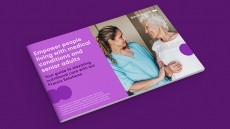B vitamin may protect pilots’ DNA from damage
Ionising radiation is radiation from both natural and man-made sources which is energetic enough to ionise atoms or molecules by removing an electron. At high altitudes, like those achieved by commercial jet airlines, are exposed to significantly higher levels of cosmic radiation than at ground level.
According to the United Nations Scientific Committee on the Effects of Atomic Radiation (UNSCEAR), airline flight crew workers are exposed to higher average doses than any other worker, including those in nuclear power plants.
The detrimental effects of this radiation exposure include potential increased risk of DNA damage, which is considered an important trigger in cancer development..
“To our knowledge, no previous study has examined the intakes of these B vitamins in relation to translocation frequency as a biomarker of cumulative DNA damage in an IR-exposed human population with which we can directly compare our findings,” stated Dr Lee Yong and Martin Petersen from the National Institute for Occupational Safety and Health at the US Centers for Disease Control and Prevention (CDC).
Writing in the British Journal of Nutrition, the researchers report that the link had biological plausibility since niacin plays an important role in the formation and maintenance of the co-enzyme Nicotinamide adenine dinucleotide (NAD), which is the substrate for an enzyme involved in the repair of DNA after DNA strand breaks.
Study details
Yong and Petersen analysed data from 83 US airline pilots aged between 35 and 56. Dietary patterns, and the subsequent intake of various nutrients, were assessed using a 138-item food frequency questionnaire developed by Harvard’s Walter Willett. Intakes included fortified products.
Blood samples were taken from the participants to allow the researchers to measure DNA damage using the frequency of chromosome translocations as a biomarker.
While no associations were observed with the dietary intake of folate, riboflavin or vitamin B6 or B12, Yong and Petersen calculated that the highest dietary intakes of niacin (an average of 28.4 mg per day) were associated with a 42 per cent reduction in the frequency of chromosome translocations, compared with pilots with the lowest dietary intakes (an average of 20.6 mg per day).
The recommended daily allowance of niacin in the US is 16 mg/day, according to the Institute of Medicine. The average intakes for men is approximately 28 mg per day (and 18 mg per day for women).
On the other hand, a fondness for red and processed meat was associated with an increased frequency of chromosome translocations.
“These findings suggest that a high intake of niacin from food or a diet high in whole grains but low in red and processed meat may protect against IR-induced cumulative DNA damage,” wrote the researchers.
“The present results may be applicable to flight crews worldwide, astronauts in space flights and frequent flyers in the general population.
“Larger studies of IR-exposed populations with broader ranges of intakes that incorporate biomarkers of vitamin B status are needed to further examine the effect modification of the translocation frequency–IR dose association as well as cancer risk by intake of these vitamins,” they concluded.
No cancer issues anyway
A recent review of the epidemiological evidence by scientists at the Johannes Gutenberg-University in Mainz, Germany reported that, despite “consistently elevated risks” for breast cancer amongst female aircrew members, and increased brain cancer among some pilots, overall cancer occurrence and mortality was lower than in the general population.
“Ionising radiation is considered to contribute little if at all to the elevated risks for cancers among aircrew, whereas excess ultraviolet radiation is a probable cause of the increased melanoma risk,” wrote the German reviewers in the journal Radiation Protection Dosimetry (doi:10.1093/rpd/ncp125).
Source: British Journal of Nutrition,
Published online ahead of print, FirstView Articles, doi:10.1017/S000711451000379X
“High dietary niacin intake is associated with decreased chromosome translocation frequency in airline pilots”
Authors: L.C. Yong, M.R. Petersen















